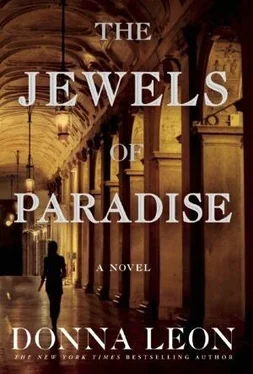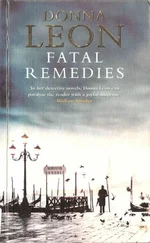She continued to read the account of the tangled history of the times in which Steffani had lived and worked, when Protestant and Catholic monarchs fought for the souls, and taxes, of whole nations. It seemed that Steffani was in the business of propaganda: she admitted this word was her choice. Politicians often used religious enthusiasm to disguise the lust for raw power, though it was possible that Steffani sincerely wanted to win souls back to the One True Church. So many One True Churches. Rather than preach to the masses, Steffani did almost no preaching nor, for that fact, did he administer the sacraments, whether to large or small groups. The abbé busied himself with the titled and powerful, attempting to return them to the embrace of Catholicism or to convert to it from their born religion of Protestantism. To the best of her understanding, all this missioneering had little to do with religion. These were political moves based on the possibility of alliance or marriage. If power shifted away from a king or emperor, an elector or a count, one way for a person to ensure survival was to bail out of the religion of the loser-to-be and sign up with the other side, then wait to see if reconversion would be necessary. She thought of a classmate of hers from Alto Adige. Though his family had lived in the same house for centuries, his grandfather had been born in Italy, his father in Austria, and he in Italy, nationality changing as the border shifted back and forth according to political whim or the spoils of war.
She wondered what belief, today, held the same force for the majority of Europeans. One way to determine that would be to try to think of the things people would die for. Transubstantiation? The Trinity? Surely not. To save their family or the life of a person they loved? Yes. But beyond that, and perhaps the attempt to save their property, Caterina could think of nothing. At dinner parties, she had heard people—mostly in England and mostly men—assert that they would give their lives for the freedom to say or write what they wanted, but Caterina didn’t believe that, just as she had never believed it for herself.
She thought of all those legends she had been taught in school, all those stories of heroic resistance and sacrifice: Giordano Bruno, Matteotti, Maria Goretti, the endless list of the martyr saints. How long ago that was, and how different we are from them.
She had no idea what danger Steffani or his fellow Catholics might have been in during the years he was attempting to change the course of history, but her sense of the times suggested it wasn’t great. He might not have had to die for what he believed, but the more she read, the closer she came to believing that he had truly been willing to live for it. He seemed to have been conscientious about his job; he traveled tens of thousands of kilometers in Germany and Austria, Belgium and the Netherlands, went back and forth to Rome a number of times. Here she thought of the accounts she had read of what it was to cross the Alps in the eighteenth century: carriage, horse, or foot, and the endless winding back and forth and up and down on impassable roads, through snow, avalanche, mud, never knowing when, or if, you would arrive. That was dedication.
If what she suspected was true, and he was a castrato, it had been done to prepare him to sing in a church choir. And yet, and yet, and yet he had remained faithful to the Church for his entire life, dedicated his energies to the propagation of that faith, had worked with full strength and conviction to convert or return rulers to that faith and thus bring into the flock the people they ruled and expand the power of that Church.
She found some contemporary opinions of Steffani and read them eagerly, curious to know what these people who had actually known him would have to say. “The metamorphosis of a mere entertainer into a bishop is as ludicrous as the scene in Lucian where a courtesan is changed into a philosopher.” Anger swept over her. He was far more than an entertainer, you supercilious bastard. She had heard the music and she knew. And then she read this other, commenting on Steffani’s acceptance of praise for one of his operas: “The haughty style seemed to me more to befit the theater than ecclesiastical humility.” Why shouldn’t he be proud of his music? And where’d this nonsense about “ecclesiastical humility” come from? When had anyone ever seen any of that ?
She got up and went to the window, looked out, seeing nothing. Was that why Steffani so needed the Church, to give himself some sort of respectability and to protect himself against open affronts? These mean-spirited comments showed that he could never be free of them nor safe from them. They could criticize his vanity or make fun of his “short black hair that is slightly mixed with gray and a satin cap, a large cross with brilliant diamonds and a large sapphire on his finger,” but so long as the cross on his chest was a bishop’s cross, they could never make fun of his masculinity.
She thought for a moment of what she had read of the apparent profligacy of his life: earning and spending great amounts of money, collecting books and relics and paintings, eating and drinking well, traveling often and always in style. Was all this meant to prove that he was one of the anointed? She thought of that round, sad face, turned back to her desk, and picked up the French novel about the Königsmarck Affair. At least lust and adultery and jealousy made sense to her.
She opened the book, and her eye fell on an elaborate book plate showing a nearly naked woman lying on a sofa, a book held open in one hand while the other lay on her rather more naked breast. Caterina’s eye fell to the title of the book the woman was not reading: La città morta. Above the drawing appeared the name Gabriele d’Annunzio and below it “ Principe di Montenevoso ” and “Presidente dell’Accademia Reale d’Italia.” Left entirely without power to comment, even to herself, Caterina began to read.
“Little did the handsome and gallant Count Philip Königsmarck know what destiny held in store for him when, at the tender age of fifteen, he first set his gaze upon the beautiful Princess Sophie Dorothea. Destiny had chosen her to be his love, his joy, the star to the wandering bark of his passions, and, ultimately, the cause of the train wreck that was to carry him to death and her to a life of misery, pain, abandonment, and shame.”
The same destiny that had endowed the count with these things had endowed Caterina with a sensitivity to truth and accuracy, and so she looked up from the opening paragraph and said, “He was sixteen, and she wasn’t a princess.” She drew a veil of unknowing between her mind and the metaphor of the train wreck and returned her eyes to the page. The book was written in French, and although she could read in the language easily, she still didn’t have the immediate knee-jerk response that a native speaker would have. It therefore took a split second before the absurd vulgarity of the language would cause her to giggle.
Within ten pages Caterina was lost in a world of climactic intemperance, with “gusts of sighs,” “floods of tears,” “tempestuous passion,” and “lightning flashes of rage.” Sophie Dorothea, she learned, was “married to a brute,” “a loving mother,” “an injured wife,” “a delightful tease,” and “slow to anger.”
Königsmarck was “a clever rake,” “ambitious and hardworking,” “one of the most brilliant swordsmen of his time,” and “unfaithful to all women until his heart was given—for life and for death—to the beautiful Sophie Dorothea.”
After forty minutes, she pushed her arms away from her, hands still holding the book, and told herself to stop this, to stop reading. It might have been good enough for d’Annunzio but it was not good enough for her. She realized only now what the good sisters had meant when they warned the ten-year-old Caterina and her classmates that a book could be an “occasion of sin” though she was in some confusion as to the precise nature of the sin she was committing. What religion said it was a sin to waste other people’s time or to be unwittingly ridiculous?
Читать дальше












